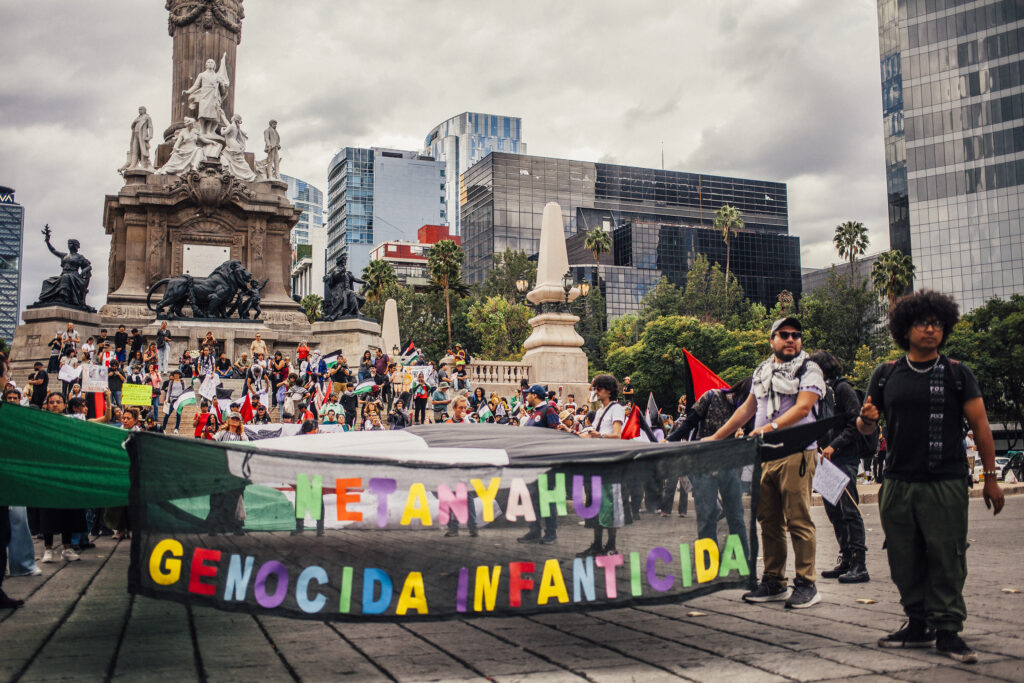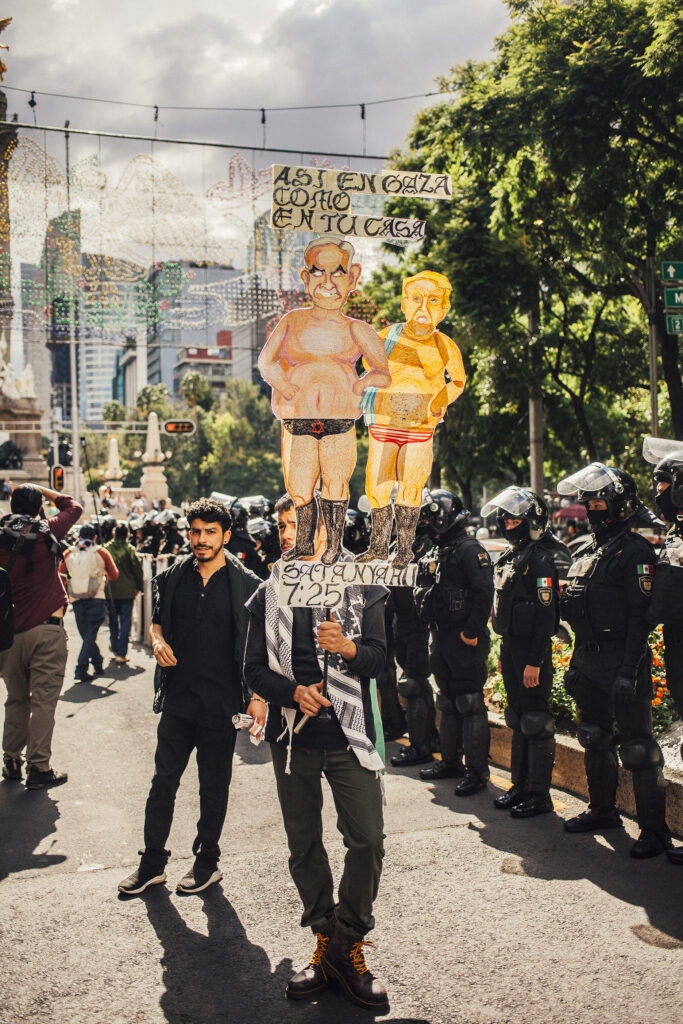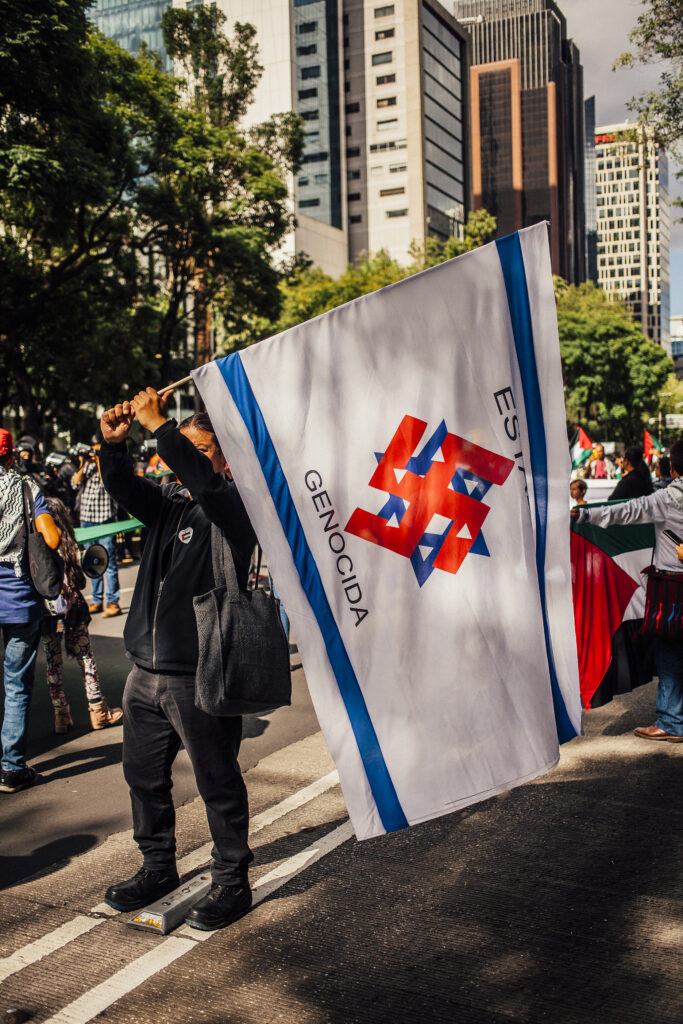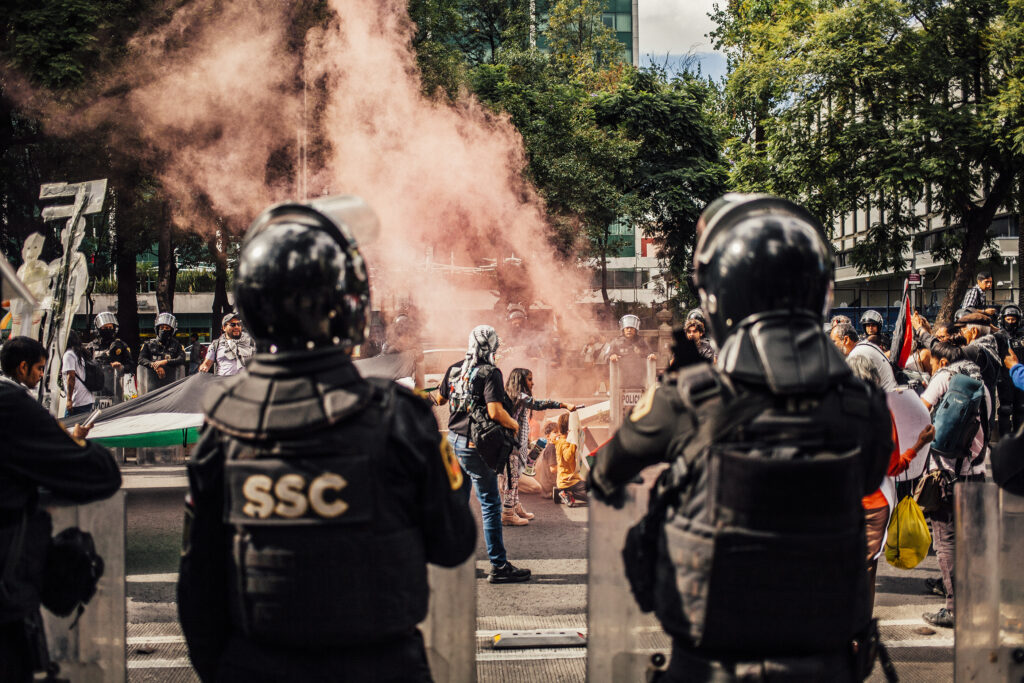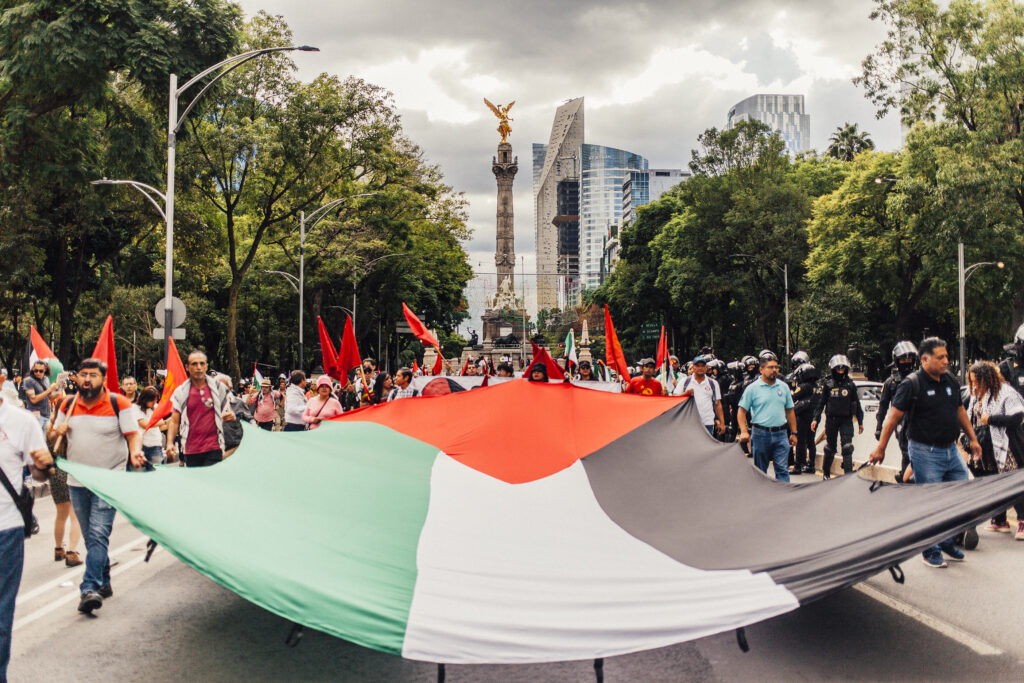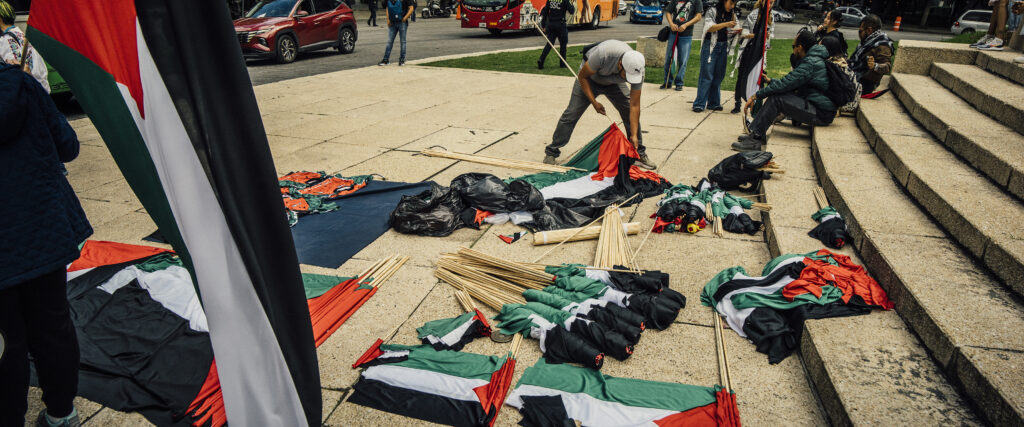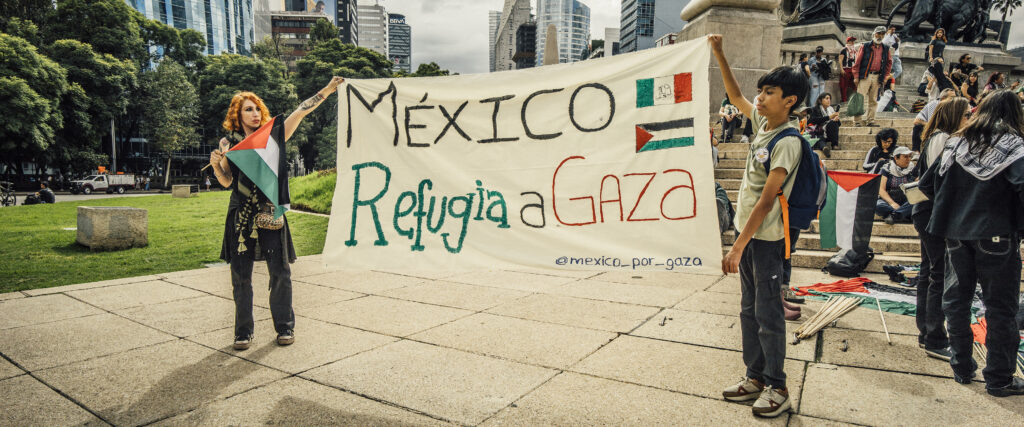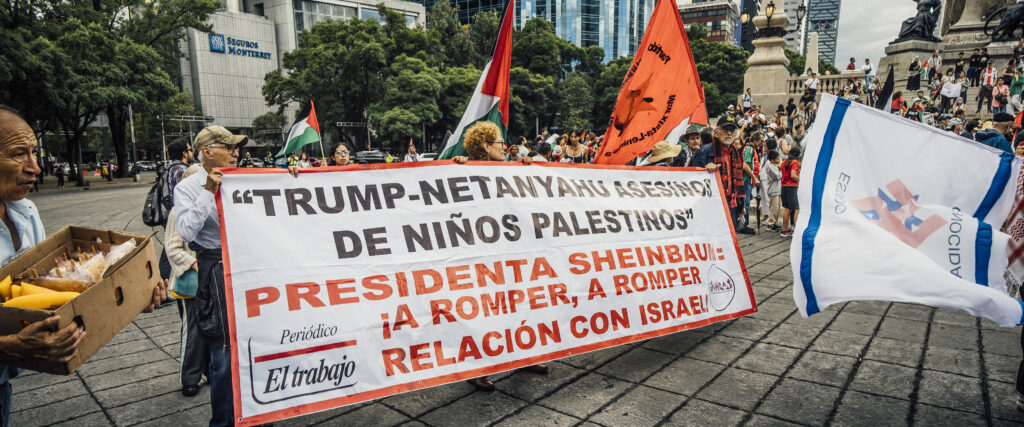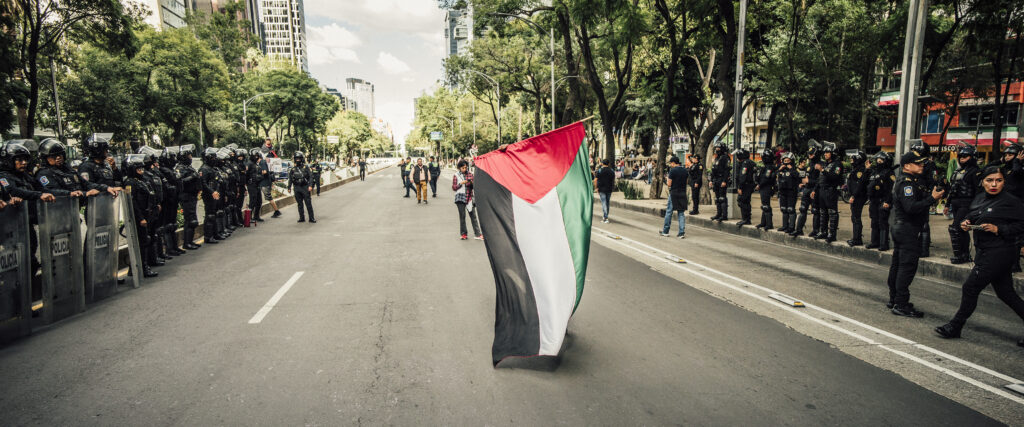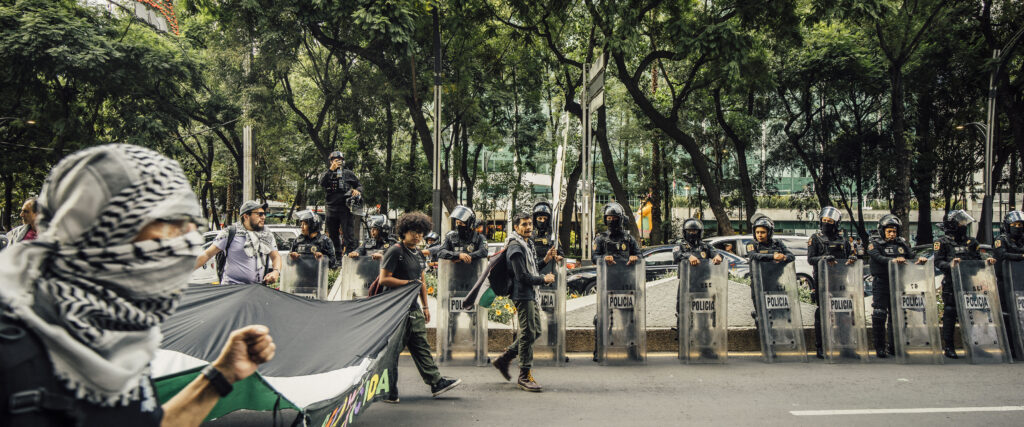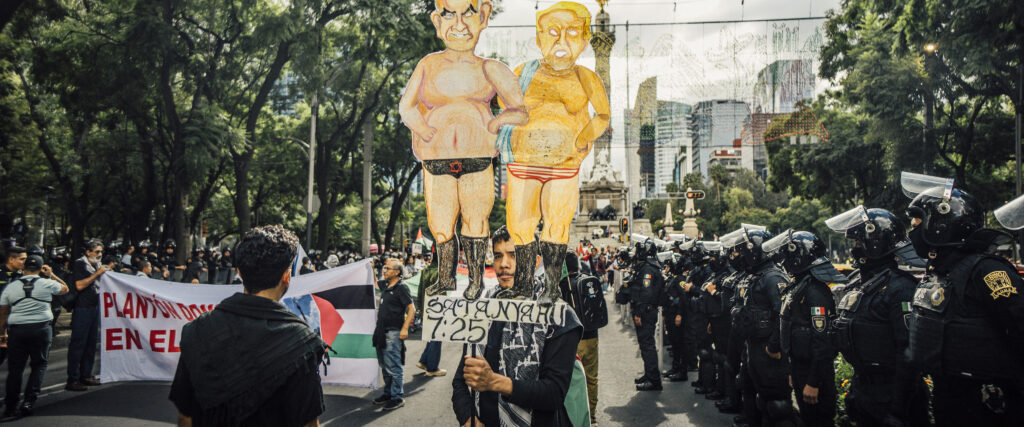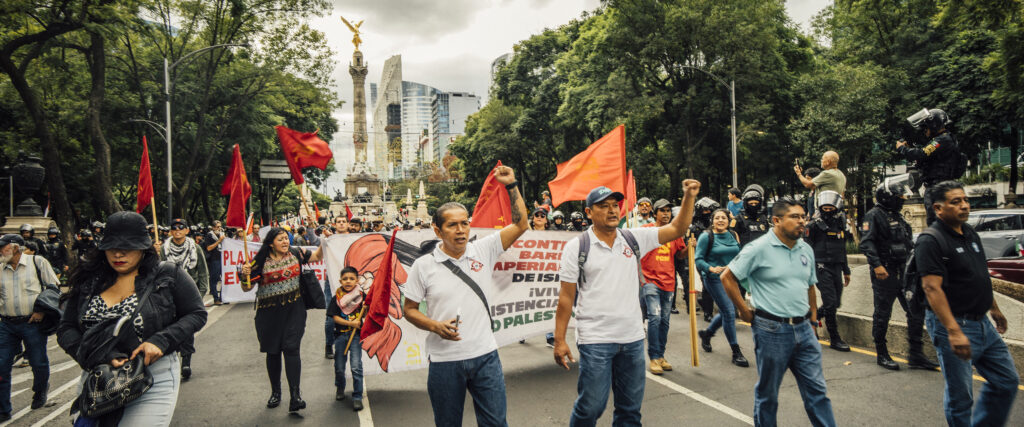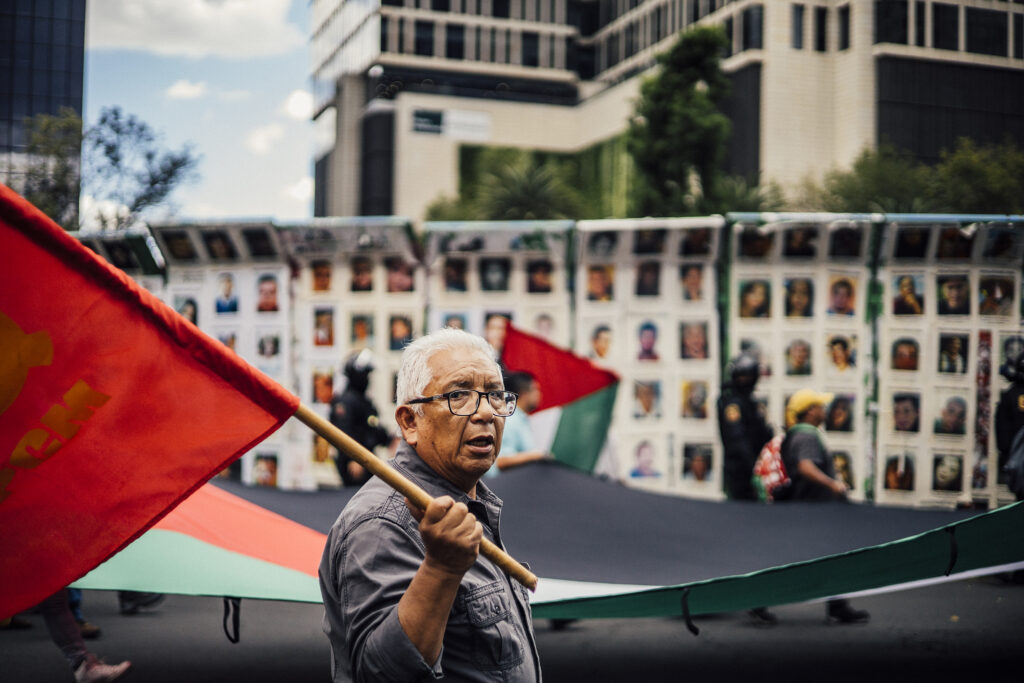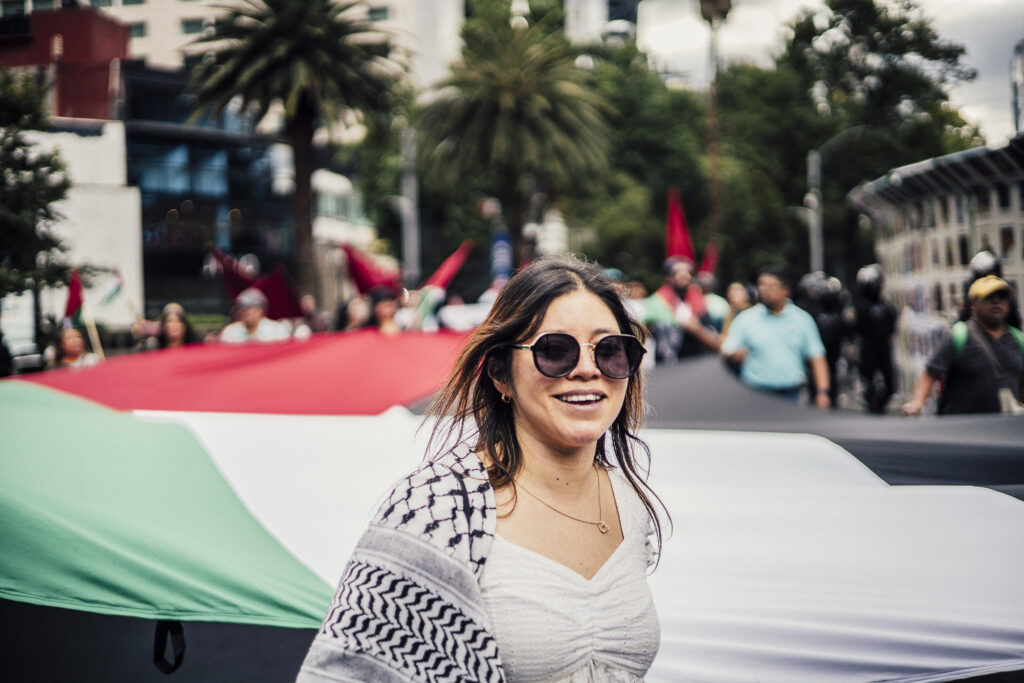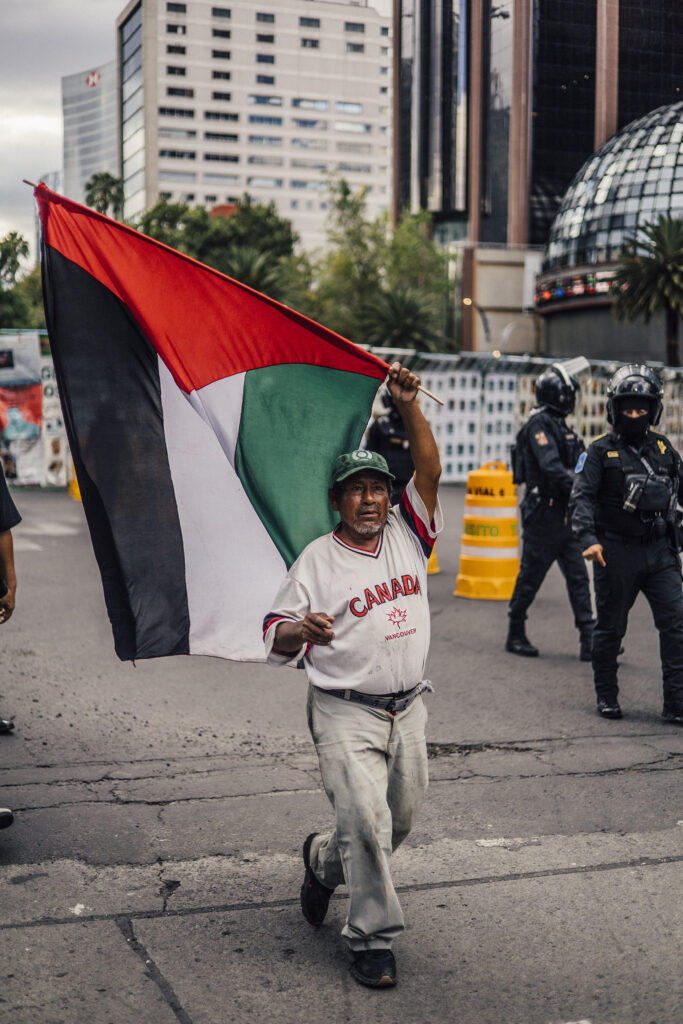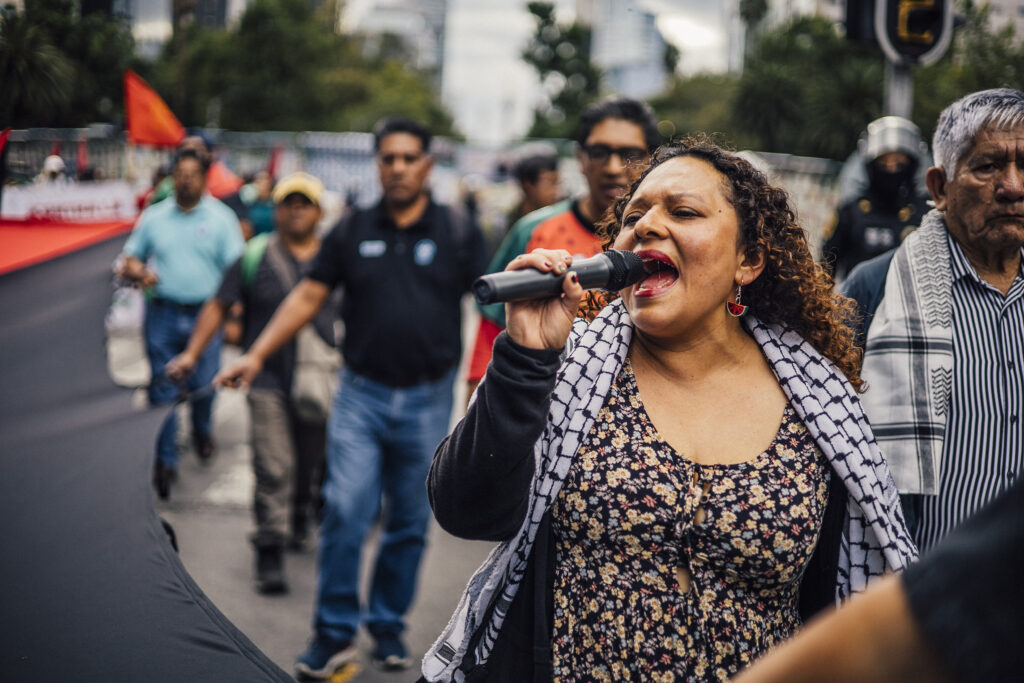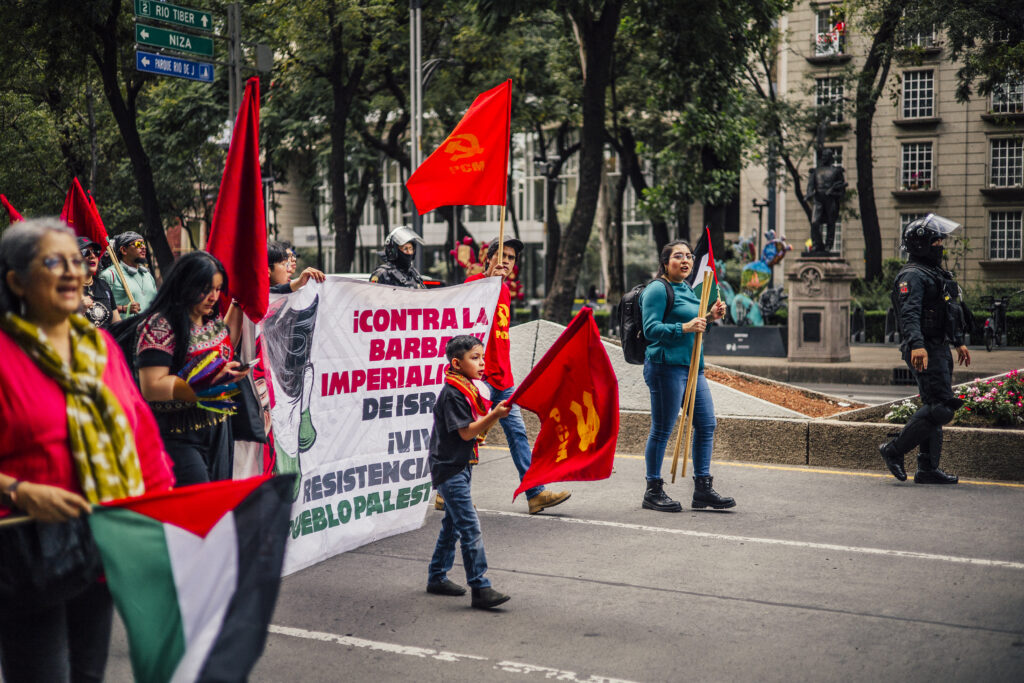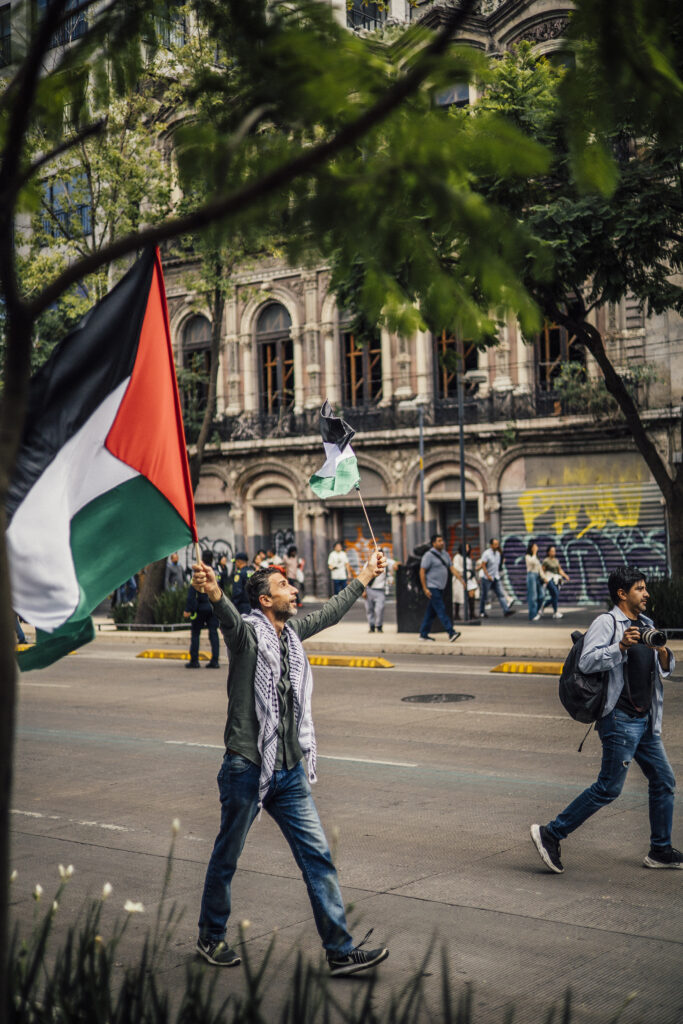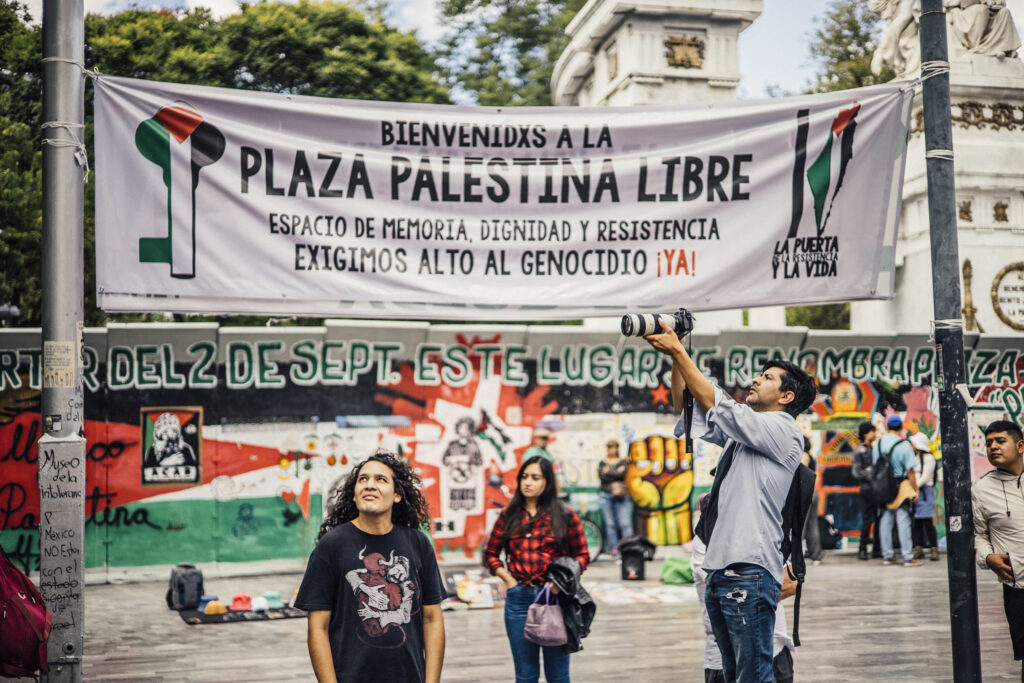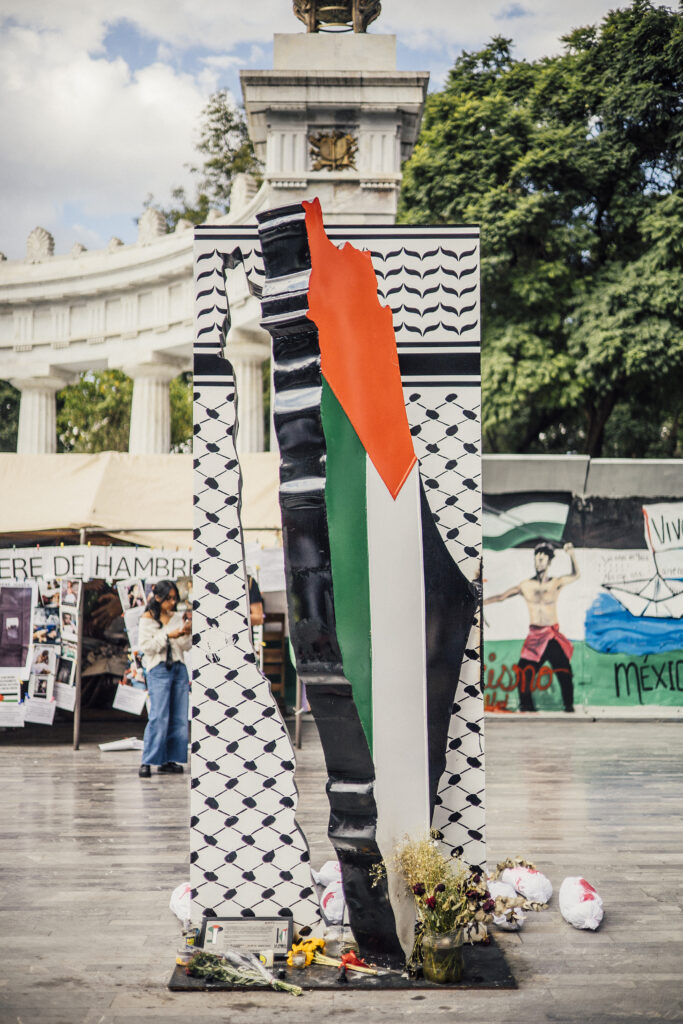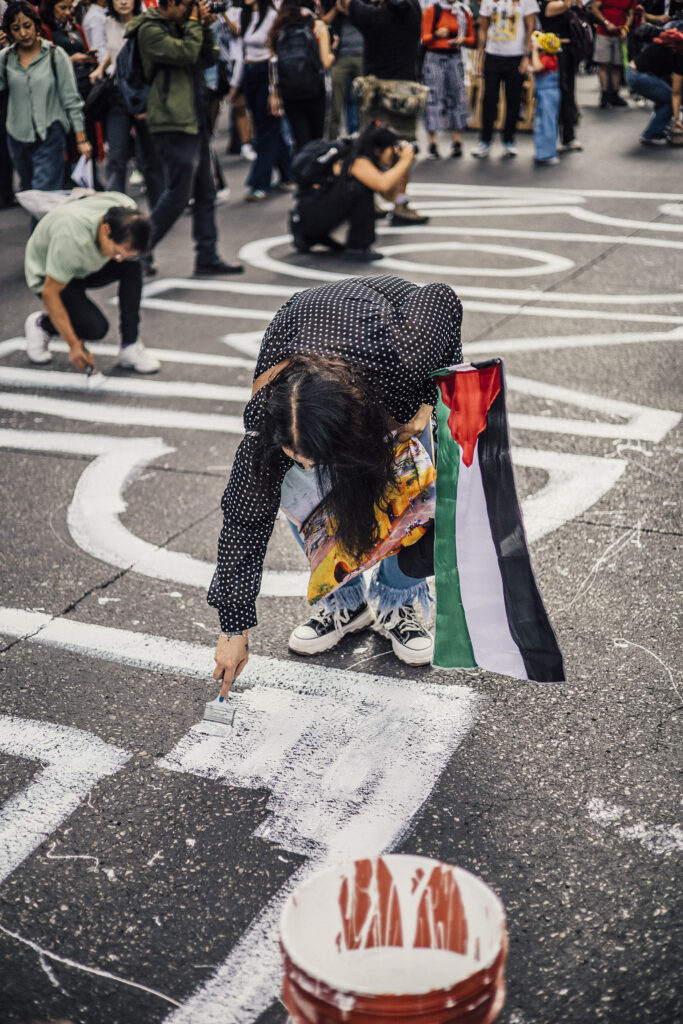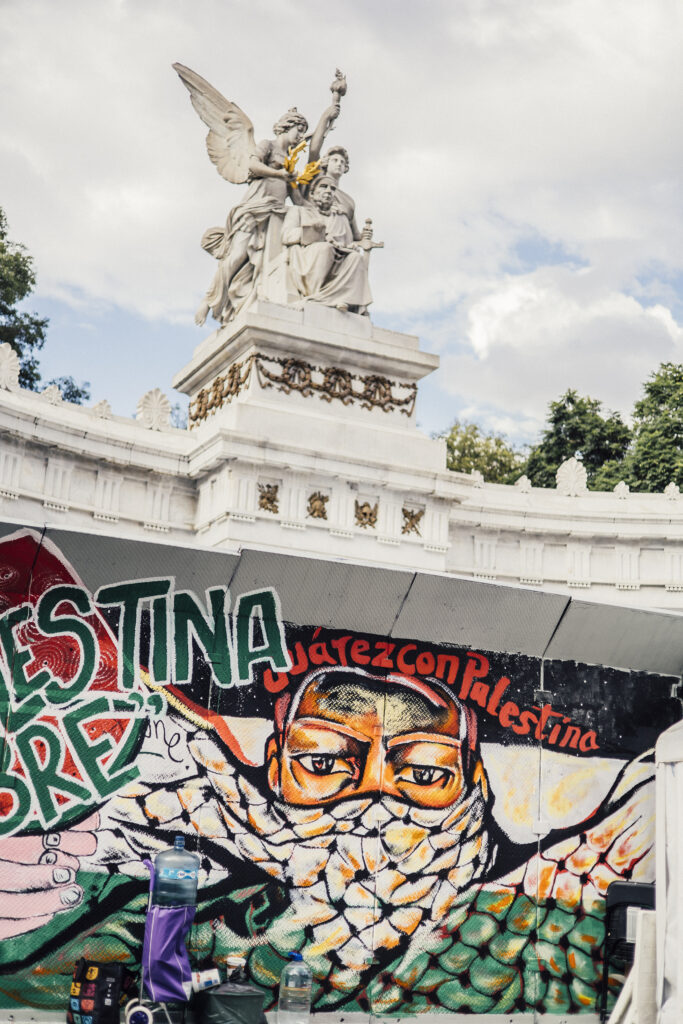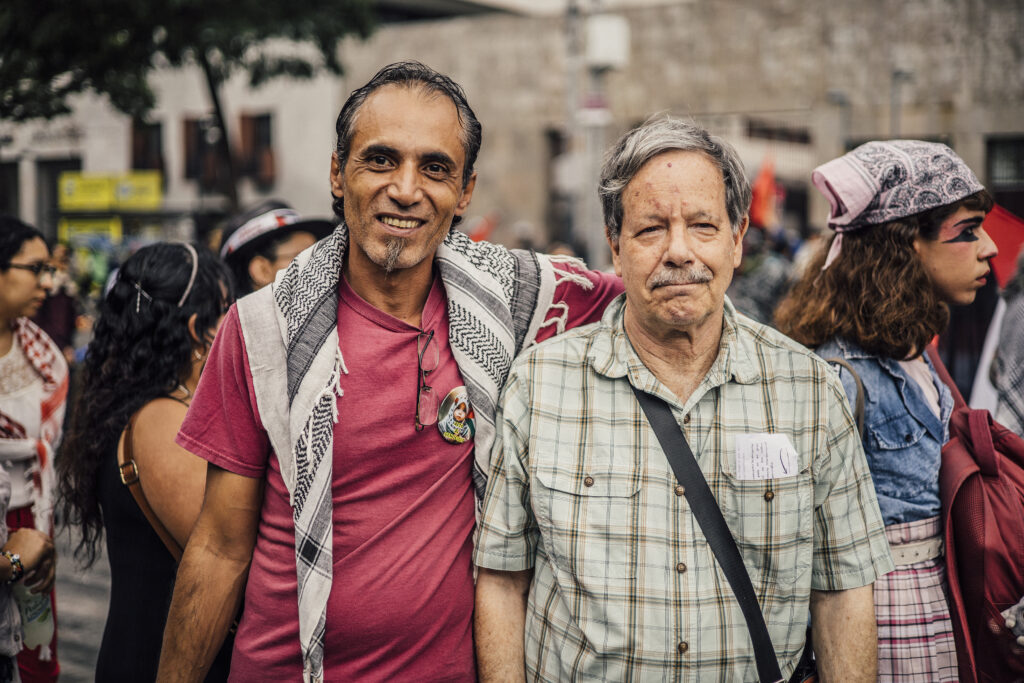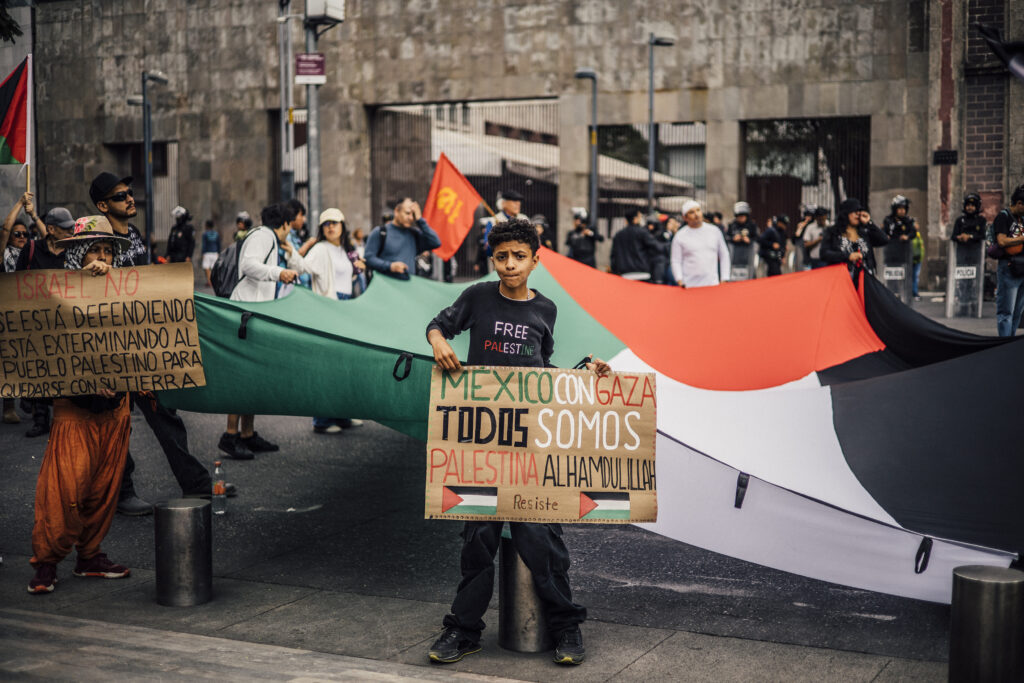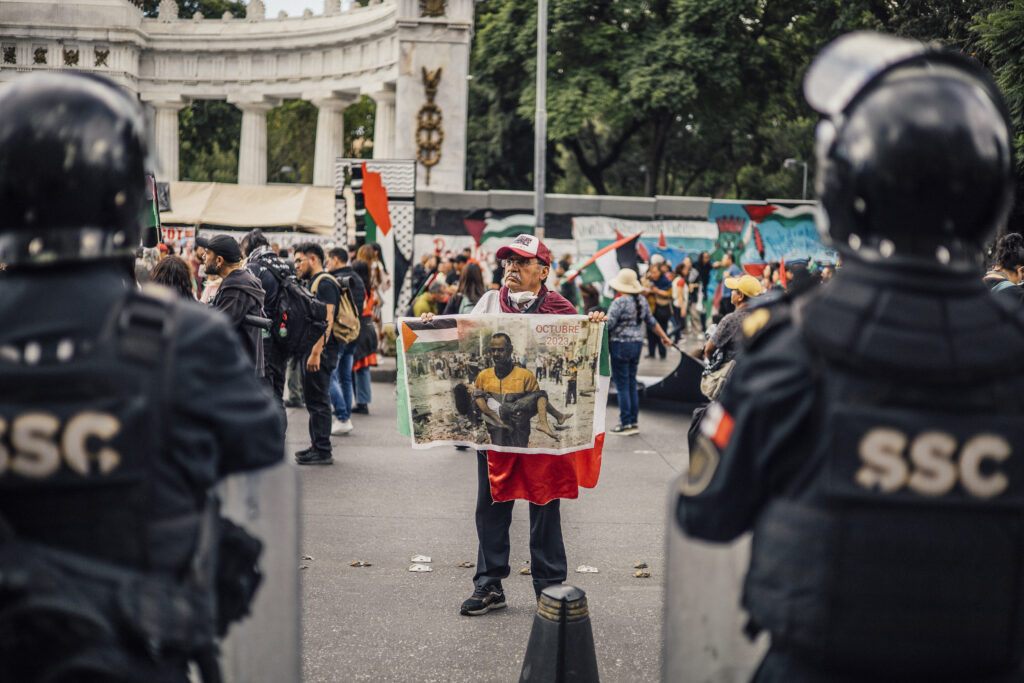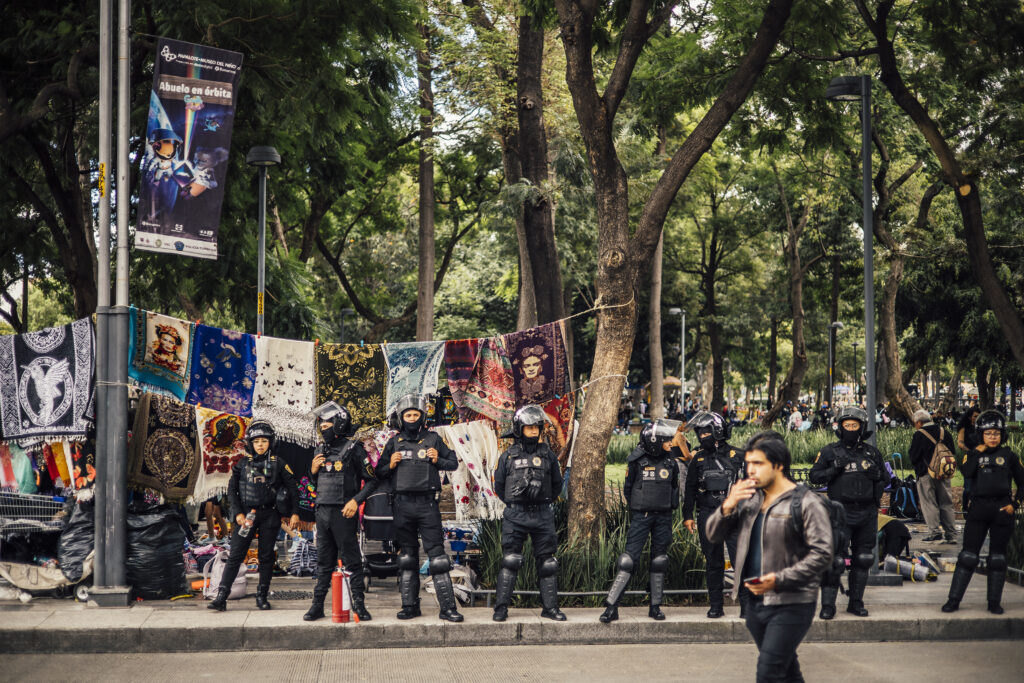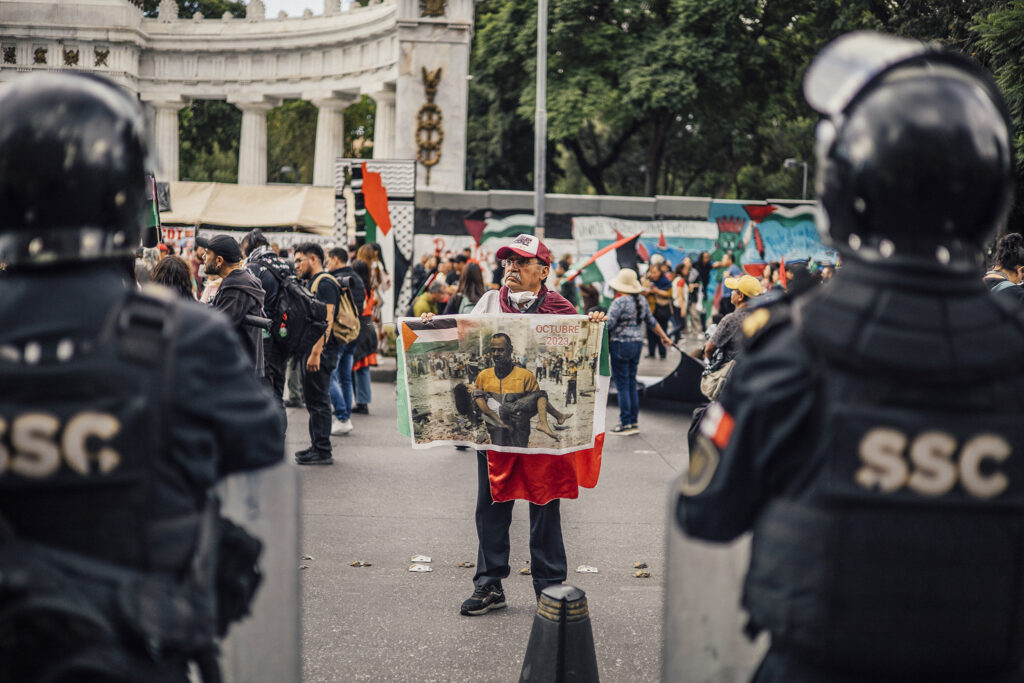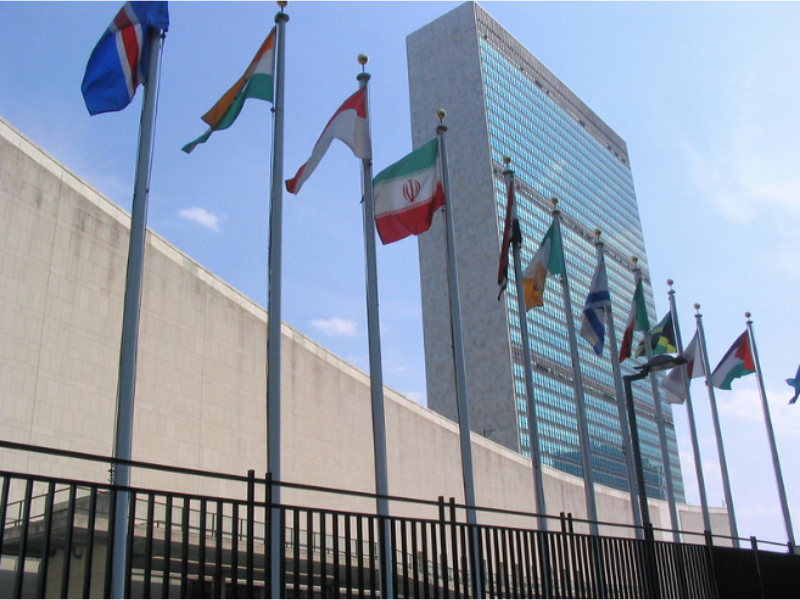Welcome to Left News Wire on ibbit.at! Ibbit.at is an RSS Lemmy instance, meaning all posts created here are generated via RSS Feeds. This community is a collection of Leftist commentary, opinion, and news covering the current events of the rapidly changing political and geopolitical economic landscape.
Feeds
- https://www.commondreams.org/feeds/news.rss
- https://mronline.org/feed/
- https://peoplesdispatch.org/feed/
- https://truthout.org/feed/?withoutcomments=1
- https://www.workers.org/feed/
- https://mondoweiss.net/feed/
- https://theintercept.com/feed/?mk=fl_is_on_feature_page&mv=1
- https://thegrayzone.com/feed/
- https://inthesetimes.com/rss
- https://www.liberationnews.org/feed/
- https://www.counterpunch.org/feed/
- https://freedomflotilla.org/feed/
- https://redsails.org/rss.xml
- https://thetricontinental.org/feed/
- https://www.congress.gov/rss/presented-to-president.xml
- https://www.nakedcapitalism.com/feed
- https://www.scmp.com/rss/4/feed (China main feed)
- https://www.scmp.com/rss/322262/feed (USA/Canada main feed)
- https://worldbeyondwar.org/feed/
- https://thered.stream/feed/
- https://micahflee.com/rss/
- https://www.liberationschool.org/feed/
- https://www.disconnect.blog/feed/
- https://damagemag.com/rss/
Canada
- https://thenorthstar.media/feed/
- https://breachmedia.ca/feed/
- https://socialistaction.ca/feed/
- https://pvonline.ca/feed/
Mexico
UK
Substacks
- https://socialismforall.substack.com/feed
- https://www.historicly.net/feed
- https://kdwalmsley.substack.com/feed
- https://thisamericanleft.substack.com/feed
- https://benburgis.substack.com/feed
- https://millennialchaos.substack.com/feed
- https://globalsouthperspectives.substack.com/feed
- https://azovlobby.substack.com/feed
- https://equalityalec.substack.com/feed
Youtube Channels:

From More Perfect Union via this RSS feed
From Common Dreams via this RSS feed

Israel’s tactic is tried and tested. Before or after it has attacked, maimed or killed anyone it wants to ‘take out’, it calls them Hamas. As these lines are written, Israel is deploying the same smear campaign against the Global Sumud Flotilla, the magnificent people – including doctors, lawyers, journalists, students, workers and parliamentarians – who are sailing toward the blood-soaked Gaza coast to break Israel’s siege of a devastated land on which its genocide of two million Palestinians is proceeding at a mechanical, ruthless, calculated pace.
Unsurprisingly, as dozens of boats converged from all over the Mediterranean on a common course toward Gaza, the Israeli propaganda machine began to scream ‘Hamas!’ at the top of its lungs, plastering in red the words ‘HAMAS FLOTILLA’ on photographs depicting its boats. “This is not humanitarian. This is a jihadist initiative serving the terror group’s agenda,” screeched Israel’s Foreign Ministry. But that’s not all.
If you googled the words “Global Sumud Flotilla” on Saturday, the search results you got could have been written by the Israeli propaganda machine. They include sponsored websites with titles such as “The Flotilla’s Real Goals… How are ‘humanitarian’ campaigns exploited?”, “Unmasking The Sumud Flotilla” and “Are ‘humanitarian’ flotillas just propaganda? Read the facts.” Anyone who reads further in search of the promised ‘facts’ is exposed to the clincher smear: Hamas is behind the flotilla.
It is, of course, no coincidence that Google plays the role of megaphone on behalf of the Israeli genocide machine. Israel’s Occupation of Palestinian Territories, along with its genocide in Gaza and ethnic cleansing in East Jerusalem and the West Bank, is Big Tech’s ideal laboratory and testing ground. As Francesca Albanese’s report ‘From Economy of Occupation to Economy of Genocide’ to the United Nations revealed, Alphabet, Google’s parent company, along with Microsoft, Amazon and Palantir, have been expanding their cloud capital services at a breathtaking pace. Face recognition software, target selection algorithms and automated execution systems are being tested in real-time, at will, and with fewer ethical constraints than in experiments on laboratory rats. Big Tech could not be happier!
But enough on the political economy of genocide and Big Tech’s complicity in it. What we have here, now, is an active smear campaign which is unfolding in preparation for a strike at the brave people sailing toward Gaza to save our souls – to proclaim loudly and clearly ‘NOT IN OUR NAME’ on behalf of you and me.
These people, our people, are about to be attacked, abducted, imprisoned or worse. Their smearing is the first act in a fresh Israeli war crime. This is not the time for analysis but for action. This is the time to sound the alarm bells, to do whatever it takes to increase Israel’s discursive and propaganda losses from ‘taking out’ the brave women and men of the Global Sumud Flotilla.
View this post on Instagram
The first thing we need to do is to tell the world the truth about the people on board the flotilla. To counter their depiction by Israel as jihadists hell-bent on the destruction of the Jews. And the best way of doing this is by letting them speak in their own words. Words like those of David Adler, my friend, comrade and associate, who sent us a long letter explaining why he boarded in Tunis the good ship ‘Family’, alongside Novara Media’s Kieran Andrieu, to set sail for Gaza. In his letter, David said:
“We are now reaching the two-year mark of this genocide: two years scrolling through unbearable images of slaughter, two years witnessing our governments enable it, two years feeling powerless to stop them.
Coming from a Jewish family in the United States, I experience that feeling as acute outrage: crimes against humanity committed in my name, for my ‘safety’, with the symbolism that once adorned my synagogue. My identity, for me, thus implies a special responsibility to do whatever I can to stop the killing, save lives, and confront the State of Israel that distorts my identity for its genocidal agenda.”
This is the kind of person that the Israeli Foreign Ministry describes as an antisemitic terror supporter. Normally, it would be merely a smear, at worst incitement to others to ‘take out’ David, to leave him unmourned if some crazed gunman takes a shot at him, thinking he got a terrorist. But, no, this is not what Israel is doing.
As you are reading this, Israel is preparing to violate international law by attacking their vessels. Put differently, Israel is in the business of inciting itself to take out David and his flotilla fellow travellers. Only we can stop them. How? By making enough noise, raising consciousness sufficiently now so that the cold, calculating minds of the Israeli genocide functionaries understand that taking our people out will cost them more in propaganda brownie points than they will gain.
As always, it is up to us. Let’s stop Israel’s attack on the Global Sumud Flotilla now!
From Novara Media via this RSS feed
Three current Pentagon officials decried a new War Department policy designed to restrict press freedom. Under new rules, the Department of War said it would forbid reporters from gathering any information that had not been approved for release and would revoke press credentials from any journalists who did not obey.
A 17-page document laying out the new guidelines says that journalists who wish to report from the Pentagon must sign agreements restricting their movement in the building and stipulating that they will not obtain or possess unauthorized material.
“DoW remains committed to transparency to promote accountability and public trust,” the department’s Orwellian memorandum states.
Experts and current Pentagon officials call the rules an egregious assault on the freedom of the press.
One defense official who spoke to The Intercept on the condition of anonymity called the new policy a “mockery of American ideals.” Another likened it to policies seen in some of the most repressive and unstable nations on the planet. “The idea they want editorial control over the press is something I expect from a banana republic not the United States,” that official told The Intercept. A third said it was Secretary of War Pete Hegseth’s latest assault on accountability, referencing his earlier efforts to kneecap the military’s lawyers.
“This is a direct assault on independent journalism at the very place where independent scrutiny matters most: the U.S. military,” National Press Club President Mike Balsamo said in a statement. “If the news about our military must first be approved by the government, then the public is no longer getting independent reporting. It is getting only what officials want them to see. That should alarm every American.”
In a Friday post on X.com, Hegseth said that “the press is no longer allowed to roam the halls of a secure facility,” and that reporters would have to “wear a badge and follow the rules — or go home.”
The Department of War responded to questions about the new policy from The Intercept with a boilerplate statement. “These are basic, common-sense guidelines to protect sensitive information as well as the protection of national security and the safety of all who work at the Pentagon,” said chief War Department spokesman Sean Parnell.
“Agreeing not to look where the government doesn’t want you to look and, by extension, not to print what it doesn’t want you to print, is propaganda, not journalism,” Seth Stern, the director of advocacy at Freedom of the Press Foundation, told The Intercept.
“The government isn’t only seeking to restrain specific documents it contends pose a unique threat, it’s seeking to restrain everything it doesn’t want the public to know.”
Stern noted that the government is legally barred from requiring journalists to trade their right to investigate the government in exchange for reporting access.
“This policy operates as a prior restraint on publication which is considered the most serious of First Amendment violations. As we learned in the Pentagon Papers case, the government cannot prohibit journalists from public information merely by claiming it’s a secret or even a national security threat,” Stern said, referencing a landmark 1971 case in which the Supreme Court upheld the right of the New York Times and others to publish a classified Defense Department study of the Vietnam War. “This is worse in a way, because the government isn’t only seeking to restrain specific documents it contends pose a unique threat, it’s seeking to restrain everything it doesn’t want the public to know. That is fundamentally unAmerican.”
Hegseth’s Pentagon pledged earlier this year to “always deliver on our promise of transparency.” In February, Hegseth booted several mainstream news organizations from their offices at the Pentagon, including CNN, NPR, the New York Times, and the Washington Post, in favor of conservative mouthpieces, like Breitbart, Newsmax, and One America News.
[
Related
Hegseth Leads Push to Punish Military Service Members Over Charlie Kirk Comments](https://theintercept.com/2025/09/17/military-hegseth-charlie-kirk-social-media-speech/)
While not specifying any outlets by name, the defense official who said the new policy mocked American ideals expressed worry that some reporters would self-censor to curry favor with the War Department. “Some of these so-called journalists are a joke,” the official said.
Balsamo noted that the latest media crackdown “comes at a time when the nation is witnessing a devastating hollowing out of defense trade publications, just as rigorous, independent coverage of military and national security issues has never been more essential.”
Regular press briefings by the Pentagon press secretary or his deputy – a staple of previous years – have been abandoned in favor of propaganda pumped out by Hegseth, Parnell, and press secretary Kingsley Wilson. Wilson repeatedly replies to questions from The Intercept with variations on the phrase: “Nothing for you on that.”
Early in his tenure, Hegseth shared classified information about forthcoming air strikes in Yemen in a private Signal group chat that included his wife. He also disclosed attack plans in a separate Signal chat that included the editor of The Atlantic.
The Pentagon was also embarrassed by a leak to the New York Times that billionaire Elon Musk would receive a briefing on the military’s war plans concerning China. That briefing was called off and led to an investigation.
The new press policy coincides with the Department of War’s political correctness crusade in the wake of the killing of conservative influencer Charlie Kirk. The military is taking disciplinary action against both enlisted troops and officers over social media posts they view as taking the wrong stance on Kirk’s legacy.
The Pentagon’s actions are part of an all-out war on freedom of speech by the Trump administration. President Donald Trump recently filed a $15 billion defamation suit against the New York Times — which a federal judge threw out Friday, calling the complaint “improper and impermissible” in its current form. Trump also sued the Wall Street Journal in July for an article chronicling his relationship with the disgraced financier and sex trafficker Jeffrey Epstein.
Trump previously sued CBS News and ABC News over their coverage of him, extracting $16 million settlements from each. This week, ABC apparently bowed to threats from chairman of the Federal Communications Commission Brendan Carr over remarks that Jimmy Kimmel, the host of ABC’s “Jimmy Kimmel Live,” had made in the wake of Kirk’s killing. The network pulled Kimmel’s late-night show from the air “indefinitely.”
Stern said that the Trump administration, like its predecessors, often leans on vague national security claims to avoid having lies exposed*.*
“Perhaps there are so many embarrassing documents at this point that it’s too difficult to keep finding bogus reasons to keep each of them secret,” Stern said. “Maybe that’s why the administration is taking more of a wholesale approach to concealing records that may show wrongdoing, corruption and incompetence.”
The post Unnamed Pentagon Officials Ridicule Hegseth’s Plan to Stop War Department Leaks appeared first on The Intercept.
From The Intercept via this RSS feed
By Mohammed Abunahel, World BEYOND War, September 21, 2025
Reintroducing Bagram Air Base in Afghanistan is not so much a “return to reason” in foreign policy as it is a symbolic use of a military issue to fuel a domestic mobilization policy based on instigating wars rather than extinguishing them. This is what U.S. President Donald Trump hinted at when he announced, regarding Bagram, “we are trying to get it back,” citing its proximity to China’s nuclear facilities—a proposal that has quickly been rejected by the current Kabul authorities and prompted professional warnings that it could effectively amount to a “re-invasion.”
There is something unknown and terrifying about Trump’s talk of reclaiming Bagram Air Base. It is not a wise, strategic decision; I see it as a continuation of the same chaos that has spawned a thousand disasters.
Reigniting a new war under the slogan of “strategic power” generates nothing but pain, corruption, illusions, and, above all, a distortion of the human spirit. To be clear, a policy that relies on a foreign military presence and bases in lands whose peoples disapprove of it is inherently doomed to failure.
Trump speaks of a “nuclear China,” as if the U.S. base would be a guard against it, or prevent the Chinese from possessing or using nuclear weapons. However, the truth is that China’s nuclear weapons are not in Afghanistan; they are within its facilities, within its borders, and within its internal forces. A base in Afghanistan or anywhere in the world will not alter China’s nuclear capabilities. Still, it will exacerbate political divisions, strain U.S. finances, and tempt the United States’ adversaries to invest in counterstrikes rather than stability.
Who benefits from the presence of the military bases? Security and military companies, contractors, arms industries, and all those who benefit from the massive budgets spent on establishing bases, building airfields, air defense, and maintenance. They propagate the idea of ”security,” but it is security built on fear, the possibility of an enemy, and threats, not peace. When Trump raises the Bagram flag, he uses it as an electoral tool, not as a carefully considered strategic dimension.
Every foreign base means soldiers, equipment, targets, possible airstrikes, the possibility of civilian casualties, the destruction of cities, and the marriage of conflict to blood. The American people are burdened by pension expenses, health care, education, and poverty. Why spend millions on a military base in a country cursed by war? Every civilian death in Afghanistan or in any foreign war is a stain on the conscience of a policy that says, “We are protecting our interests.”
Who will agree to have a military base imposed on their country, even by a superpower? Reclaiming Bagram Air Base means an interference in the sovereignty of a country. This unacceptable military intervention is a humiliation of dignity and will breed resistance, hatred, and perhaps revenge. Who would believe that U.S. policy under the Trump administration respects sovereignty? Instead, it acts as if it were an unaccountable empire.
Afghanistan itself is the biggest lesson. More than twenty years of al-Qaeda, bombs, promises, training of local forces, and financial support. All of this went down the drain. Is the United States trying to repeat the same mistake? Is it trying to reopen a wound that alerted the world that war always leaves indelible losses?
Why do I reject Donald Trump’s policy? Because it reproduces a mentality of “military power above all else,” favoring the spirit of war instead of the spirit of peace. It fuels hatred and extremism, inciting both internal and external polarization. Because it reduces politics to a permanent arena of conflict, rather than treating it as a tool for negotiation, cooperation, or humanity, it exhausts the United States’ internal capacity, accelerates economic drain, and weakens international trust.
I am not neutral regarding this point, and I do not believe that “sometimes we must use force” in this situation. No. War is never the way. The base is never a symbol of pride, but a symbol of wounds. A policy that declares “I want a base” is a policy seeking war, not security.
If Trump thinks that reclaiming Bagram Air Base will give him dominance or make him look powerful, he’s deceiving himself. Real strength lies in admitting mistakes, acknowledging the harm that has been caused, stopping the exploitation of lands that aren’t his, and ceasing to spread fear to fuel wars.
I say no to Bagram, no to the policy of foreign bases, and no to any politician who adopts war as their policy. No to interests built on the blood of peoples, no to money stolen in the name of security, no to force that breaks humanity, no to policies that fuel wars and expose the fragility of slogans.
War is not an option, and bases are not an investment; it is a deception.
The post Trump Wants a Base in Afghanistan. Rest of World Wants U.S. Bases Out. appeared first on World BEYOND War.
From World BEYOND War via this RSS feed
On Saturday, September 21, in Mexico City a march against the Gaza genocide made its way from the Angel of Independence to the Benito Juárez Hemicycle, which has been transformed into a center of Palestinian solidarity since an anti-monument for Palestine was added last month. The march was organized by a coalition of 300 of Mexico’s trade unions and Palestinian solidarity organizations, and made five demands of the Mexican government:
In the face of all this barbarity and recovering the best traditions of history by breaking diplomatic relations with dictatorships such as those of Francisco Franco in Spain, Augusto Pinochet in Chile, or Anastasio Somoza in Nicaragua, the manifesto of the Coordinator of Trade Unions for Palestine presented the following list of demands:
Demand that the Mexican government sever diplomatic, commercial, military, and cultural relations with the Zionist State of Israel. Cancel the Israel-Mexico Free Trade Agreement. Prohibit the acquisition of any military, police, or security products or services.
Express our complete solidarity with the Palestinian people and support their right to their own state, in accordance with their sovereign decision, without any external interference. Stop the genocide!
Conduct an intensive educational campaign within the ranks of ourtrade union organizations to inform them of the criminal nature of the Zionist State of Israel and the just struggle of the Palestinian people for their national liberation.
Promote various mobilizations, supported by the broadest sectors of the Mexican people, to condemn the Zionist regime of Israel, supporting international sanctions against Netanyahu and his genocidal government. Zionism is a danger to humanity!
End the criminal blockade of food, water, and medicine carried out by theoccupying forces, using hunger as a weapon of war. We will seek the best ways to deliver our support to the Palestinian population and demand that the Mexican government promote this policy within the United Nations Security Council.
Photos by Jay Watts.
Mexican Trade Unions for Palestine March Against Gaza Genocide
September 21, 2025
The march was organized by a coalition of 300 of Mexico’s trade unions and Palestinian solidarity organizations, and made five demands of the Mexican government.
Agrifood Exports Fall Due to Trump’s Policies
September 21, 2025September 21, 2025
The closure of the US to Mexican beef, coupled with the compensatory quota imposed on tomatoes, caused a 4.3% drop in the value of Mexican agricultural exports in the first seven months of 2025.
Clicks September 21
September 21, 2025
Our weekly roundup of Mexican political stories in the English and Spanish language press, including decades of the drug war, Aytozinapa, a historic Grito, Zedillo’s debt, Global Sumud Flotilla, TV Azteca debts, and Canada and Mexico.
The post Mexican Trade Unions for Palestine March Against Gaza Genocide appeared first on Mexico Solidarity Media.
From Mexico Solidarity Media via this RSS feed

What if we stopped treating the future like a speculative asset and started trying to actually build and prepare? The ACFM gang look to the horizon in this Trip episode.
Did young people always worry so much about their futures? Has the currency of emergency been devalued? Does conservatism have an idea of the future? Nadia, Jem and Keir wonder what’s next with ideas from Max Weber and Kate Raworth, and music from LTJ Bukem and FKA twigs.
Follow our Spotify playlist of all the music discussed on ACFM and subscribe to the ACFM mailing list to get weirder and leftier.
Music: Zager & Evans – In the Year 2525 (Exordium & Terminus) / Spontaneous Music Ensemble – Karyōbin / Tubeway Army – Are ‘Friends’ Electric? / Man or Astroman? – Maximum Radiation Level / FKA twigs – Drums of Death / LTJ Bukem – Horizons / Kraftwerk – Computer Love
Books and articles: Jonathan White – In the Long Run: The Future as a Political Idea / Reinhart Koselleck – Futures Past / E.P. Thompson – The Making of the English Working Class / Nick Srnicek & Alex Williams – Inventing the Future / Rahel Jaeggi – Progress & Regression / Reinhart Koselleck – Futures Past / A safe operating space for humanity – Rockstrom et al, 2009 / Kate Raworth – Doughnut Economics / Derrida – Spectres of Marx / Max Weber – The Protestant Ethic and the Spirit of Capitalism / Andreas Malm & – Wim Carton – Overshoot / Angela McRobbie – The Aftermath of Feminism
From Novara Media via this RSS feed
By the Office of the UN High Commissioner for Human Rights, Septamber 21, 2025
On the anniversary of the adoption of the General Assembly resolution following the ICJ ruling on Palestine, UN experts* urged Member States to comply with their obligations under international law, take concrete actions to stop Israel’s attacks against the Palestinians and end its unlawful occupation. They issued the following joint statement:
“We are appalled that, despite the overwhelming support at the UN General Assembly for the resolution based on the International Court of Justice’s advisory opinion of July 2024, which declared Israel’s continued presence in the occupied Territory unlawful and affirmed that all States are obliged not to recognise, aid, or assist the decades-long occupation. The situation today continues to be apocalyptic, with the Palestinian people facing an existential threat.
The resolution set out clear responsibilities for third States and international organisations, including the UN system, in relation to Israel’s unlawful occupation. It called on Israel to comply with international law by withdrawing its military forces, halting all new settlement activity, evacuating settlers from occupied land, dismantling sections of the separation wall built inside the West Bank and East Jerusalem, and ending the exploitation of Palestinian natural resources. The resolution clarified that any State that continues to aid, assist, or otherwise contribute to the occupation and its related violations risks breaching international law and becoming complicit in international crimes.
The one-year anniversary of the resolution comes at the bleakest of times. Seven hundred days of a military assault on the Gaza Strip and the rest of the occupied Palestinian territory has killed and injured at least 230,000 Palestinians. 2.1 million civilians in the besieged enclave are literally starving. The whole of Gaza has been reduced to rubble and the entire population has been forcibly displaced, often multiple times. The failure of most Member States to act decisively exposes the deep erosion of the multilateral system that has been reduced to becoming the collateral damage of the Gaza genocide.
In recent months, the collective and far-reaching nature of the unfolding genocide has become undeniable – marked by mass killings, unspeakable suffering, and large-scale destruction. The violence is no longer confined to Gaza; it is spilling into the West Bank, where forced mass displacement and brutal attacks by armed settlers cannot be dismissed as the actions of a few rogue officials but are aided and abetted by the State at every level. Every branch of the Israeli State – it’s Executive, Parliament, and Courts – have failed to restrain or remedy this abuse of power. Instead, they have perpetuated and advanced the catastrophe, built – as with every genocide before it – on the systematic dehumanisation of an entire people.
The time to stop this genocide is long past. We are dismayed that Member States did not take the obligation to prevent a genocide seriously. Israel’s continued impunity and the failure to stop the monstrous crimes being committed against Palestinians has set the stage for further aggression by Israel against other countries in the region. It should have been stopped before Rafah was invaded; before Israel attacked several countries across the Middle East and North Africa.
The UN Independent International Commission of Inquiry on the Occupied Palestinian Territory, including East Jerusalem, and Israel has concluded in a report published this week that Israel has committed genocide against Palestinians in the Gaza Strip.
Yet instead of action, a world that is now fully awake to the horror of genocide and the injustice of occupation and apartheid is confronted with silence, or worse, justification from a small but powerful group of States that continue to enable Israel’s assault on Gaza, on international law, on the multilateral system and on humanity itself.
In this heartbreaking moment, we remind the international community of the recommendations that we highlighted in a statementissued on 18 September 2024 and recall the Position Paper issued by the United Nations International Commission of Inquiry on the Occupied Palestinian Territory, including East Jerusalem and Israel.
To comply with the Advisory Opinion, the International Court of Justice affirmed the need to cut ties with the unlawful occupation. This means that sanctions cannot be avoided, including on Israel, on individuals and on businesses doing business with a genocidal regime:
Israel must be removed from the United Nations;Economic and military relations must be cut, including through preventing trade or investment relations and cultural ties with Israeli actors that promote the occupation or benefit from it;States must not recognise and reverse any recognition of changes in status of the occupied Palestinian territory;A full arms embargo must be imposed on Israel, halting all arms agreements, imports, exports and transfers, including dual-use items that could be used against the Palestinian population under occupation, in line with the reminder issued to all States in Nicaragua v Germany; andStates must prevent, investigate and prosecute all citizens and visitors in their jurisdiction who serve or have served in or for the Israeli military and contributed to the occupation, apartheid and genocide regime, including through buying property in occupied territory.
The longer States maintain these ties, the more they entrench normalisation and legitimise illegality – all the while fostering impunity and rendering themselves complicit in international crimes.”
Francesca Albanese,Special Rapporteur on the situation of human rights in the Palestinian Territory occupied since 1967George Katrougalos*,Independent Expert on the promotion of a democratic and equitable international orderBalakrishnan Rajagopal,Special Rapporteur on the right to adequate housingMichael Fakhri,Special Rapporteur on the right to foodAlexandra Xanthaki,Special Rapporteur in the field of cultural rightsTomoya Obokata, Special Rapporteur on contemporary forms of slavery, including its causes and consequencesMorris Tidball-Binz,Special Rapporteur on extrajudicial, summary or arbitrary executionsOlivier De Schutter,Special Rapporteur on extreme poverty and human rights;Nicolas Levrat,Special Rapporteur on minority issuesAstrid Puentes Riaño,Special Rapporteur on the human right to a clean, healthy and sustainable environmentPaula Gaviria Betancur,Special Rapporteur on the human rights of internally displaced personsPedro Arrojo Agudo,Special Rapporteur on the human rights to safe drinking water and sanitationTlaleng Mofokeng,UN Special Rapporteur on the right of everyone to the enjoyment of the highest attainable standard of physical and mental healthSurya Deva,Special Rapporteur on the right to developmentGina Romero,Special Rapporteur on the Rights to Freedom of Peaceful Assembly and of Association;Pichamon Yeophantong (Chairperson), Damilola Olawuyi (Vice-Chairperson), Fernanda Hopenhaym, Lyra Jakulevičienė and Robert McCorquodale,Working Group on business and human rightsClaudia Flores (Vice-Chair), Dorothy Estrada Tanck, Ivana Krstić, and Haina Lu,Working group on discrimination against women and girlsJovana Jezdimirovic Ranito (Chair-Rapporteur), Ravindran Daniel, Michelle Small, Joana de Deus Pereira, Andrés Macías Tolosa,Working Group on the use of mercenariesBina D’Costa (Chair), Barbara G. Reynolds, Isabelle Mamadou,Working Group of Experts on People of African DescentElizabeth Salmón,Special Rapporteur on the situation of human rights in the Democratic People’s Republic of Korea.Farida Shaheed, Special Rapporteur on the right to educationElisa Morgera,Special Rapporteur on the promotion and protection of human rights in the context of climate changeHeba Hagrass,Special Rapporteur on the rights of persons with disabilitiesCarlos Duarte (Chair),Working Group on the rights of peasants and other people working in rural areasReem Alsalem,Special Rapporteur on violence against women and girls, its causes and consequences*
The post One Year After ICJ Ruling, UN Experts Urge States to Confront Inaction Over Israel’s Unlawful Occupation appeared first on World BEYOND War.
From World BEYOND War via this RSS feed
From Mondoweiss via this RSS feed
This article by Braulio Carbajal originally appeared in the September 21, 2025 edition of La Jornada, Mexico’s premier left wing daily newspaper.
The closure of the United States borders to Mexican beef, coupled with the compensatory quota imposed on tomatoes, caused a 4.3 percent drop in the value of Mexican agricultural exports in the first seven months of the year, according to official data.
According to figures from the Bank of Mexico, between January and July 2025, our country sold agricultural products to the world (mainly the United States) worth $31.64 billion, a figure lower than the $33.70 billion reported in the same period last year.
Regarding imports, during the period in question, they increased from $26.9 billion to $26.23 billion, an increase of 0.5 percent.
Thus, Mexico’s agricultural trade balance ended the first seven months with a positive balance of 4.8 percent, meaning that exports continue to exceed imports. However, the balance is at its worst level since 2018, at 7.3 percent, and is well below the 8.6 percent reported in the same period last year.
By sector, fruit and vegetable exports registered the best performance, with an annual increase of 44.9 percent to $14.233 billion. This strong performance reflects sales of avocados, one of the “star” products of Mexican agriculture, whose exports increased 22.3 percent, from $2.57 billion to $2.516 billion.
Berries (strawberry, raspberry, blackberry, and blueberry, among others) fell 6 percent in this category, dropping from $2.162 billion to $2.33 billion.
This sector was also pressured by the 18.9 percent drop in tomato exports, with exports falling from $1.989 billion in the first seven months of 2024 to $1.612 billion in the same period this year. This was a consequence of the 17.09 percent compensatory quota imposed by the United States government on July 15, citing unfair trade practices by Mexico.
Regarding agro-industrial products, they registered an annual increase of 9.2 percent in their foreign sales, reaching $2.914 billion, despite the decline of two of Mexico’s flagship products: beer and tequila.
The former fell 3.5 percent annually, from $4.161 billion to $4.14 billion, while the latter fell 8.4 percent, from $2.505 billion to $2.292 billion.
In the grain and oilseed sector, Mexican exports fell by 7.7 percent; however, our country is not known for exporting these types of agricultural products, but rather for importing them, as is the case with corn.
Meanwhile, the livestock sector is another affected sector, with a 7.5 percent decrease to $2.375 billion. The most affected products here are livestock and meat, with a decrease of 18.9 percent, from $1.989 billion to $1.612 billion.
This collapse is a consequence of the U.S. government’s closure of Mexican cattle due to a screwworm outbreak, which has caused millions in losses to the national industry.
Mexican Trade Unions for Palestine March Against Gaza Genocide
September 21, 2025
The march was organized by a coalition of 300 of Mexico’s trade unions and Palestinian solidarity organizations, and made five demands of the Mexican government.
Agrifood Exports Fall Due to Trump’s Policies
September 21, 2025September 21, 2025
The closure of the US to Mexican beef, coupled with the compensatory quota imposed on tomatoes, caused a 4.3% drop in the value of Mexican agricultural exports in the first seven months of 2025.
Clicks September 21
September 21, 2025
Our weekly roundup of Mexican political stories in the English and Spanish language press, including decades of the drug war, Aytozinapa, a historic Grito, Zedillo’s debt, Global Sumud Flotilla, TV Azteca debts, and Canada and Mexico.
The post Agrifood Exports Fall Due to Trump’s Policies appeared first on Mexico Solidarity Media.
From Mexico Solidarity Media via this RSS feed
The official histories of the Second World War, curated by Western powers, are built upon a foundation of deliberate omissions. They typically mark the war’s beginning with the Nazi invasion of Poland in 1939 or the attack on Pearl Harbor in 1941. This chronological sleight of hand is a profound political act, framing the conflict as a primarily European affair and erasing a full decade of war, fascism, and resistance that had already engulfed Asia.
One of the starting points of the World Anti-Fascist War can be traced back to September 18, 1931. On that day, Imperial Japan staged a false-flag explosion near Mukden (now Shenyang) in northeast China. This event, the “9.18 Incident”, was the pretext for the invasion of Manchuria, marking the start of a brutal 14-year war against the Chinese people. This historical reframing was the central purpose of a recent webinar hosted by Tricontinental Asia and the Global South Academic Forum, “18 September 1931: Remembering the Origins of War, Fascism, and Resistance in Asia”, which sought to revisit this often-overlooked origin point of World War II and center the experiences of Asian peoples and their resistance struggles.
The scale of the historical erasure is staggering. While Western narratives foreground their own sacrifices, they consistently downgrade the immense human cost borne by others. The 27 million Soviets who died resisting Nazism are often mentioned, but the nearly 24 million Chinese people killed resisting Japanese expansionism are relegated to a footnote. New research reveals that at least 8.7 million colonial subjects, overwhelmingly in Asia, died during the war – ten times the combined Anglo-American death toll. Insisting on 1931 as the war’s starting point is therefore a fundamental act of decolonizing history, shifting the center of the conflict from Europe to Asia and revealing how, for years, Western powers enabled the aggressors, fearing communism more than fascism.
Voices from the resistance
For the Chinese people, the war is a living memory. As Professor Lu Xinyu of East China Normal University powerfully stated in the webinar. “Every inch of China – the mountains and the rivers – holds a story from the war of resistance which comes to constitute our national memory”. Born just after the full-scale invasion began in 1937, her mother – whose given name, Yong Ping means “eternal peace” – was nearly killed in her cradle by a Japanese bomb. According to Lu, this collective experience informed Mao Zedong’s strategy of a “war of the whole nation,” uniting the army and the masses into an “invisible” force of popular resistance. Lasting peace, she argued, is a revolutionary process. She told the story of a Japanese war criminal, a university-educated man turned into a “demon” by Japanese imperial military training, who committed horrific atrocities. In a Chinese prisoner of war camp, he was not simply punished but educated with the works of Mao Zedong, which “shatter[ed] his understanding” of the war. He dedicated the rest of his long life to the anti-war movement, convinced that pursuing “eternal peace is the sole purpose for my rest of time”.
The Korean peninsula endured one of the most brutal experiences of Japanese colonial rule. Dae-Han Song of the International Strategy Center in South Korea argued that this context is essential. “Was Japan trying to be like Western imperialist [powers]?”, Song asks. The answer is yes. To avoid the fate of being colonized like its neighbors, Japan chose to become a colonizing force. Japan’s modernization was a reaction to Western gunboat diplomacy, and the West actively encouraged its colonial ambitions, with the US giving Japan a “green light to colonize South Korea in exchange for the US colonizing the Philippines” in a secret 1905 agreement. The colonization that followed was savage, involving forced cultural assimilation, economic exploitation, forced labor for over a million Koreans, and the abduction of hundreds of thousands of “comfort women” as sexual slaves. The war’s end brought no justice. The US, fearing communism, reinstated Korean elites who had collaborated with the Japanese, creating a “topsy-turvy world where the villain became the hero and the hero became the villain”. This injustice was formalized by the 1951 San Francisco Peace Treaty, which excluded the war’s primary victims and contributors – namely the Soviet Union and China – and allowed Japan to evade accountability, and consolidate the country as an militarily-occupied and anti-communist bulwark in the region.
In the Philippines, the war was also an ideological struggle between two opposing internationalisms. Ramon Guillermo of the University of the Philippines traced the birth of a genuine proletarian internationalism forged by Filipino and Chinese communists. The early Filipino labor movement was tainted by a racist, anti-Chinese chauvinism encouraged by US labor federations. The turning point came when communist-led radicals broke away to form a new federation that welcomed their Chinese comrades, creating a Filipino-Chinese united front that laid the groundwork for the Communist Party of the Philippines (PCP). This solidarity proved vital when the PCP organized the Hukbalahap, the most effective guerrilla peasant resistance against the Japanese, trained in part by veteran Chinese communists. This class-based internationalism stood in stark contrast to Japan’s “Greater East Asia Co-prosperity Sphere,” a *“*pseudo internationalist, ultra nationalist and racist idea” that cynically sought to replace Western colonialism with Japanese imperialism under the guise of “Asia for the Asiatics”.
The moral clarity of the “good war” narrative collapses when viewed from the colonized world. Vijay Prashad, Executive Director of Tricontinental, presented a searing indictment of what he termed a “colonial holocaust” perpetrated by the Allies. He argued that the Bengal Famine of 1943-1944, which killed three to four million Indians, was a man-made atrocity, a direct consequence of British imperial policy. To sustain its war effort, the Churchill government systematically diverted food from India and implemented policies that led to foreseeable and preventable mass starvation. As Prashad insists, these millions of dead were “War casualties, all of them”. This was accompanied by economic plunder and the brutal repression of India’s own independence movement. The official casualty figures for Indian soldiers are a gross distortion, ignoring those killed by the British themselves. For the colonized, the “World Anti-Fascist War” was inseparable from the “World Anti-Colonial War”.
An unfinished struggle for memory, peace, and justice
The history of the World Anti-Fascist War is a contested terrain. The dominant Western narrative is a political weapon used to legitimize the post-war imperial order and obscure the ongoing struggles of the Global South. To recover the true history of the war – a war that began in Asia in 1931 – is an essential task for our time, especially in an era of a resurgence of far-right forces, growing militarisation, and a climate of a dangerous new Cold War against China and its allies.
“Is it that the West today is so little interested in an anti-fascist struggle because they sacrificed so little to defeat fascism?” posed Vijay Prashad provocatively. “And is it the reason why it’s the Chinese and others who are so interested in anti-fascism? Because we sacrificed so much to defeat it?”. The memory of that sacrifice fuels a deep commitment to peace.
As Chinese President Xi Jinping proclaimed in his speech at the 80th-anniversary commemoration of the Chinese People’s War of Resistance Against Japanese Aggression and the World Anti-Fascist War, “Might may rule the moment, but right prevails forever… we must always commit to the path of peaceful development… and work together to build a community with a shared future for humanity.” This is the vision that animates the struggles of the peoples of the Global South. The final, enduring message is one of revolutionary hope, a conviction articulated by Professor Lu Xinyu: “justice will prevail, peace will prevail, and the people will prevail.” It is a promise captured in the solemn words of the Korean anti-colonial poet Yun Dong-ju, who died in a Japanese prison just before the war’s end:
With a heart that sings the stars,
I will love all dying things.
And I will walk the way
that has been given to me.
Tonight, again, the wind brushes the stars.
Tings Chak is the co-coordinator of Tricontinental Asia, editor of Wenhua Zongheng: A Journal of Contemporary Chinese Thought, and PhD candidate at Tsinghua University in Beijing, China.
The post The war that began in Asia: Revisiting the roots of the world anti-fascist war appeared first on Peoples Dispatch.
From Peoples Dispatch via this RSS feed
By World BEYOND War, September 21, 2025
The webinar built on the momentum of the Gambia Youth Peace Forum on Killer Robots held in May 2025, which engaged youth, policymakers, and civil society in dialogue on banning autonomous weapons. It seeks to extend the conversation globally, highlighting the role of young people in shaping ethical responses to artificial intelligence (AI) militarization and promoting a culture of peace.
Participants include:
– Nyaling Sonko: Co-Coordinator of the World BEYOND War Gambia Chapter – Gabriel Coutinho: Researcher, member of the Stop Killer Robots Youth Network – Omar Mboob: Coordinator of the World BEYOND War Gambia chapter – Al Mytty: Coordinator of the World BEYOND War Illinois chapter – Guy Feugap: Africa Organizer for World BEYOND War.
The post Gambian Youth Perspectives on AI, Militarization, and Peacebuilding appeared first on World BEYOND War.
From World BEYOND War via this RSS feed
By Rivera Sun, World BEYOND War, September 21, 2025
Charlie Kirk’s murder. School shootings in Minneapolis and Denver. Genocide in Gaza. Russia’s war in Ukraine. Violence is everywhere. It’s frightening and heartbreaking.
No one likes violence. Do they?
In truth, our culture sends out very mixed messages when it comes to violence. We glorify it in movies. We fantasize about it in video games. We pour billions of dollars into weapons and guns each year. We pour billions into police and efforts to stop it. We justify it (when used by people on ‘our side’). We denounce it (when used by the ‘other side’). We criminalize it. We profit from it. We are traumatized by it.
It doesn’t have to be this way. And this week, tens of thousands of people are taking action to end violence in all its forms.
Campaign Nonviolence Action Days is underway an impressive 5,595+ actions and events across the United States and around the world working to “build a culture of peace and active nonviolence, free from war, poverty, racism, and environmental destruction.”
Stretching across the 12 days between the International Day of Peace on September 21 and the International Day of Nonviolence on October 2, this worldwide effort brings together over 100 groups and organizations who are working on different aspects of a culture of active nonviolence.
They are stopping fist fights. They are fostering social skills to prevent bullying. They are keeping people safe in war zones.
They are also tackling systemic violence – the policies and systems that cause harm.
They’re doing mutual aid and sharing food to prevent hunger. They’re campaigning for affordable healthcare. They’re cleaning up trash and addressing pollution. They’re calling for renewable energy to replace fossil fuels.
The tens of thousands of people moving into action this week are showing that nonviolence is not passivity. It is not doing nothing. It is active, powerful, and transformative. It is not merely the absence of violence – it is the presence of solutions. Nonviolence is a word that encompasses a broad toolbox of skills and policies that heal, liberate, transform, empower, and offer us better ways to deal with the pressing issues of our times.
Campaign Nonviolence began in 2014 with 240 actions across the United States. Now in its 12th year, the immense effort of 5,595+ actions and events brings together students, educators, faith communities, activists, artists, community leaders, nonprofits, families, civic leaders, and many others. This year, organizers are working on the theme of “practicing nonviolence toward self, others, world, and earth.”
With international efforts like World Wellness Weekend, people are practicing self-care by attending some of the 10,000 free health and wellness sessions as a way to reduce harm to one’s body, mind, and spirit.
With groups like Cure Violence, Nonviolent Peaceforce, DC Peace Team, Sandy Hook Promise, and United Religions Initiative, people are training in violence prevention and de-escalation skills as a way of stopping fights and attacks. They also have hundreds of street teams deployed everywhere from local neighborhoods to war zones to refugee camps, working to keep people safer.
With visibility actions like street demonstrations, overpass banner brigades, postering, and vigils, they brought awareness to hot button issues like immigration raids, trans rights, the genocide in Gaza, and rising authoritarianism.
With participation in efforts like World Cleanup Day, SunDay, Draw the Line, Make Billionaires Pay, Climate Film Festival, and the Fossil Fuel Nonproliferation Treaty, people are working to stop the extreme violence of the climate crisis.
Many groups participate in Peace Day events on September 21, holding rallies, vigils, anti-war and anti-militarism actions, opposing nuclear weapons, and calling for ceasefires. On October 2, the International Day of Nonviolence and the birthday of Mahatma Gandhi, people are engaging educational events to teach about active nonviolence. These include film screenings, talks and lectures, webinars, trainings, art events, and creative teach-ins using a set of 12 coloring pages on historic nonviolent campaigns.
Campaign Nonviolence takes the broad view that violence can be physical, systemic, and cultural. It causes harm directly – such as with bullets and bombs – and indirectly through policies that cause hunger, poverty, toxic pollution, inequality, discrimination, etc. Violence is also fomented by cultural beliefs and attitudes, such as racism, sexism, homophobic or transphobic views, xenophobia, classism, and more.
Violence may be everywhere … but nonviolenceis, too. Campaign Nonviolence helps to illuminate that people want a different kind of culture, society, and world – and they’re willing to take action to get it.
“Nonviolence is a way of life for courageous people,” said Dr. Martin Luther King, Jr. And courageously, we can shift our culture toward it. We can shift how we respond to conflicts in-person and in the streets. We can implement policies that help people, not harm them. We can engage our society in changing its cultural views away from hate and discrimination, and toward respect and understanding. We can advocate for and support human rights, democracy, ecological sustainability, economic justice, racial justice, and peace and justice for all.
Campaign Nonviolence empowers tens of thousands of people each year to use nonviolent tools to construct nonviolent solutions in a world longing for change. “Means are ends in the making,” said Mahatma Gandhi. If we want a nonviolent world, we must build it through those means.
[*Rivera Sun*](http://www.riverasun.com/)*, syndicated by*[*PeaceVoice*](http://www.peacevoice.info/)*, has written numerous books*, *including*[*The Dandelion Insurrection*](https://www.riverasun.com/online-store)*and the award-winning*[*Ari Ara Series.*](https://www.riverasun.com/the-ari-ara-series/)*She is the editor of*[*Nonviolence News*](https://nonviolencenews.org/)*, Program Coordinator for*[*Campaign Nonviolence*](https://paceebene.org/),*and a nationwide trainer in strategy for nonviolent campaigns.*
The post [Who Wants to End Violence? With 5,595+ Actions, Campaign Nonviolence Is Working on It](https://worldbeyondwar.org/who-wants-to-end-violence-with-5595-actions-campaign-nonviolence-is-working-on-it/) appeared first on [World BEYOND War](https://worldbeyondwar.org/).
***
*From [World BEYOND War](https://worldbeyondwar.org/) via [this RSS feed](https://worldbeyondwar.org/feed/)*By World BEYOND War, September 21, 2025
We’re closer than ever before to winning an arms embargo on Israel in Canada. Parliament just resumed. With a new Parliament come new opportunities to expose Canada’s complicity in genocide, enlarge our movement, and compel the government to act.
This fall, we’re coming together to close the loopholes that Canada is using to arm Israel. On September 17th, we held a briefing call for everyone to share Arms Embargo Now campaign updates and plan our next steps.
The post VIDEO: Arms Embargo Now Movement Briefing from Canada appeared first on World BEYOND War.
From World BEYOND War via this RSS feed
Left News Wire
A leftist newswire providing commentary, opinion, and covering current events of the rapidly changing political and geopolitical economic landscape.

